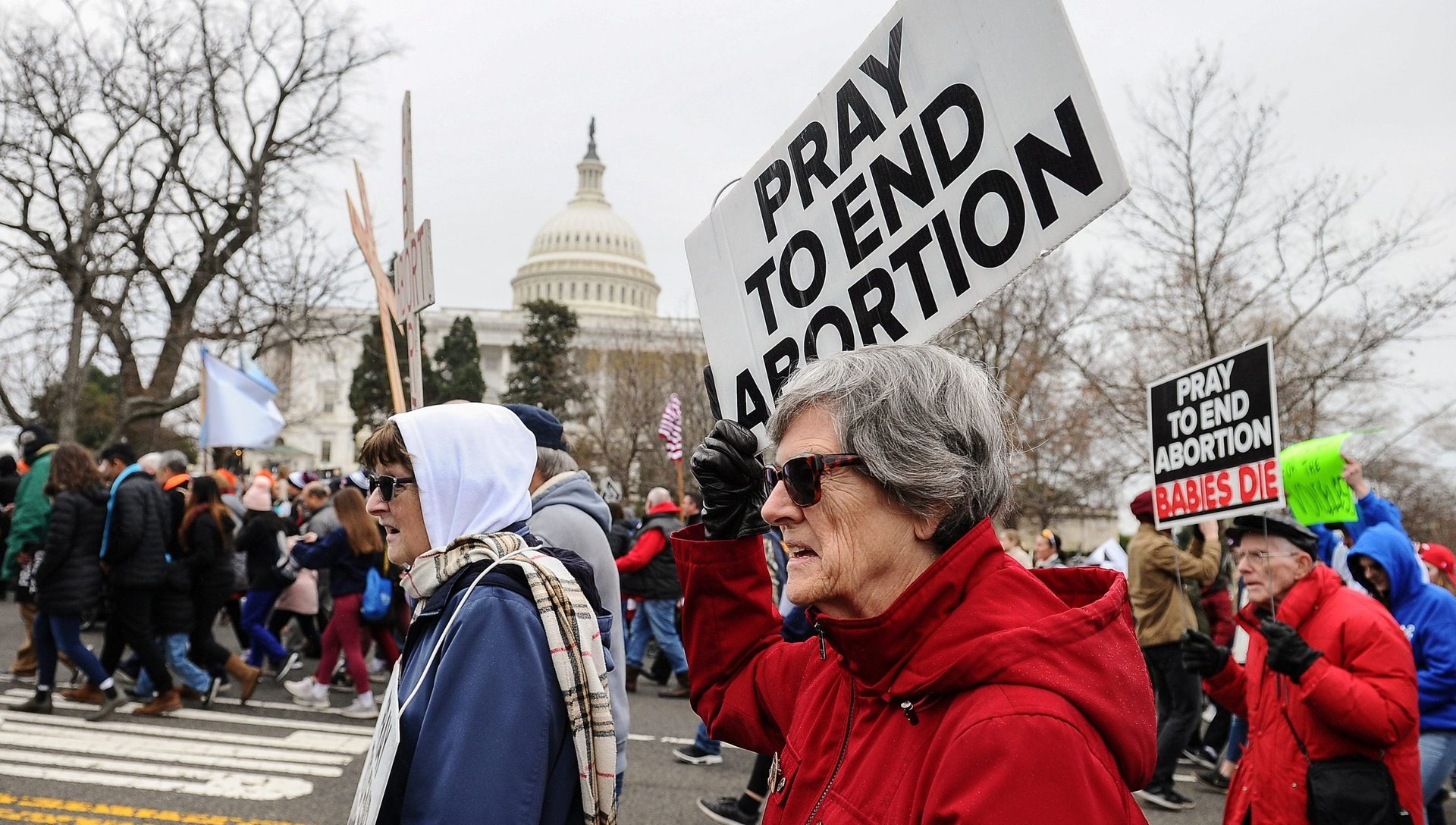Activists are using Covid-19 to set limits on abortion around the world
The spread of the novel coronavirus has helped anti-abortion activists in the US win victories—at least for now—that they have sought ever since the US Supreme Court ruled in 1973 that women have a constitutional right to terminate a pregnancy.


The spread of the novel coronavirus has helped anti-abortion activists in the US win victories—at least for now—that they have sought ever since the US Supreme Court ruled in 1973 that women have a constitutional right to terminate a pregnancy.
Facing shortages of personal protective equipment and healthcare staff due to the Covid-19 pandemic, authorities in Texas, Ohio, Mississippi, Louisiana, Oklahoma, and Alabama have declared that abortion is an elective medical procedure that can be suspended during this time. In effect, this means millions of women in the US now live in states where they may not be able to get an abortion for as long as this pandemic persists. Planned Parenthood has challenged Texas’ policy change in an emergency filing with the Supreme Court.
Activists say these American cases are examples of the kinds of roll-backs in sexual and reproductive rights that often occur during emergencies all over the world.
In Poland this week, for example, lawmakers debated a controversial proposal to ban abortions in cases of fetal abnormalities. Abortion in Poland is only legal in cases of rape, incest, severe fetal abnormalities, or when the mother’s life is at risk. Polish lawmakers first received the proposal in 2016, but abandoned it in the face of large-scale public protests. Activists say the conservative government of president Andrzej Duda is now using the nationwide lockdown, when people are stuck at home, to pass the bill.
There’s reason to believe that even temporary rollbacks on abortion rights are difficult to reverse. In 2013, the Texas state legislature passed House Bill 2, which placed prohibitive staffing and material requirements on abortion clinics and required that doctors performing abortions obtain admitting privileges at a nearby hospital. According to The Texas Tribune, of the more than 40 abortion clinics operating in Texas in 2013, only about half remained open after the Supreme Court overturned HB2 in 2016.
The battle for abortion rights is playing out on another front as well: Telemedicine. In an emergency like Covid-19, some activists argue governments should allow healthcare providers to prescribe and ship abortion pills to women who are less than 10 weeks pregnant and administer them via telemedicine. But this process is highly restricted globally. Last week, a court in The Hague rejected a case filed by a woman’s rights organization on behalf of a single mother who wanted to receive abortion pills by mail because she was under quarantine and couldn’t travel to the clinic to get them. And in England, the Department of Health temporarily approved at-home telemedicine abortions, but reversed its decision within hours, telling The Independent that the new guidelines were published by mistake.
Evidence from around the world shows that, if abortion is illegal or highly restricted, women will seek out unsafe abortions. In 2006, the World Health Organization (WHO) said 68,000 women die every year (pdf), mostly in poor countries, from complications tied to unsafe abortions, and called this a “preventable pandemic.”
In an email to Quartz, Ian Askew, director of the Department of Sexual and Reproductive Health and Research at the WHO, cited the 2015 Zika outbreak and 2014 Ebola epidemic as examples of “what happens when women cannot continue to access the reproductive health services that are normally available. Maternal and newborn mortality rises and unintended pregnancies increase. Worryingly, women and children often suffer higher levels of domestic and intimate partner violence. The impact is inevitably harshest on those living in poverty or who are socially marginalized.”
That, he said, is why the WHO included reproductive health services in the operational guidance it released last month for “sustaining essential services during the pandemic.” But these guidelines have attracted the ire of some anti-abortion activists in the US, who have called on their government to defund the WHO specifically because of its stance on abortion. While these calls are not exactly mainstream—a petition circulating on a pro-life site has only garnered 7,000 signatures—they come at a sensitive time. US president Donald Trump recently announced he was suspending US funding to the WHO for 60 to 90 days, pending a review.
In times of crisis, it’s easy for all sorts of human rights to fall to the wayside. But the right to access sexual and reproductive health services, including abortion, is especially vulnerable to partisan attacks and resource constraints. That, argued Arthur Erken, director of communications and strategic partnerships at the United Nations Population Fund, is why, even at this moment, countries should be thinking about how to preserve this right.
“When a crisis hits,” he wrote in an email, “think about the women and girls.”